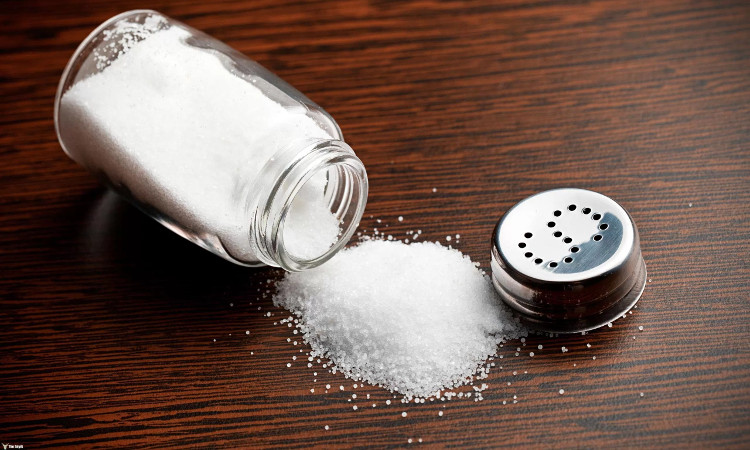The missing piece when conquering Mars is this white powder
Salt does not cause thirst! This new discovery has an extremely important role in the future of approaching Mars .
They have taught that "salty thirst is thirsty" , and this is also reflected in our daily reality.
However, a new study has found that salt does not cause thirst in the long term. And this discovery will play an extremely important role for the future of conquering Mars.

This white powder is salt.
Specifically, Max Delbrück Center for Molecular Medicine (abbreviated MDC) in Berlin, Germany conducted a study to determine the effect of salt on the human body. This study aims to serve directly for the Mars travel campaign, as it relates to the astronauts' diet.
The study was conducted on 10 people, involved in two simulated flights from Earth to Mars, with lengths of 105 days and 205 days, respectively. Within weeks, candidates were tested on various diets with different salt content.

High-salt diets actually increase the frequency of hunger, not thirst.
Previously, salt was thought to be related to increased bladder urine, because salt made people thirsty and drink more.
However, this study revealed a different mechanism: salt has contributed to kidneys storing more water than usual. And in the long run, this could make a person drink less water.
"Before the study, the common theory is that sodium and chloride ions in salts bind to water molecules, and pull them into the urine. New research shows the difference: salt will be trapped in urine, but the water molecules turn to the kidneys and remain in the body " - quoted from MDC.

Mars's mission requires a different diet.
Studies in mice also show that a high-salt diet actually increases the frequency of hunger, not thirst. Participants in the latest study also said they were hungry after a high-salt diet.
Therefore, the study confirmed in the long run, a high salt diet actually helps to consume less water. However, in the short term, they still make people feel thirsty and want to drink more water.
The study is published in the journal Clinical Investigation.
- America: Will conquer Mars within the next 20 years
- NASA finally found the missing robot on Mars, but they are still not happy
- Conquering white sharks weighing 1000kg
- Details of NASA's 5-stage plan to bring people to Mars
- Settling on Mars: Make water and oxygen
- Traces Soviet missing ships on Mars
- Mysterious white light appears briefly on Mars
- White dwarf missing in planetary nebula
- New discovery of the city 4,000 years missing
- Russia developed a method to create atmospheres on Mars
- Mission Mars before the risk of failure
- The truth is why white smoke is floating on the surface of Mars
 Van Allen's belt and evidence that the Apollo 11 mission to the Moon was myth
Van Allen's belt and evidence that the Apollo 11 mission to the Moon was myth The levels of civilization in the universe (Kardashev scale)
The levels of civilization in the universe (Kardashev scale) Today Mars, the sun and the Earth are aligned
Today Mars, the sun and the Earth are aligned The Amazon owner announced a secret plan to build a space base for thousands of people
The Amazon owner announced a secret plan to build a space base for thousands of people